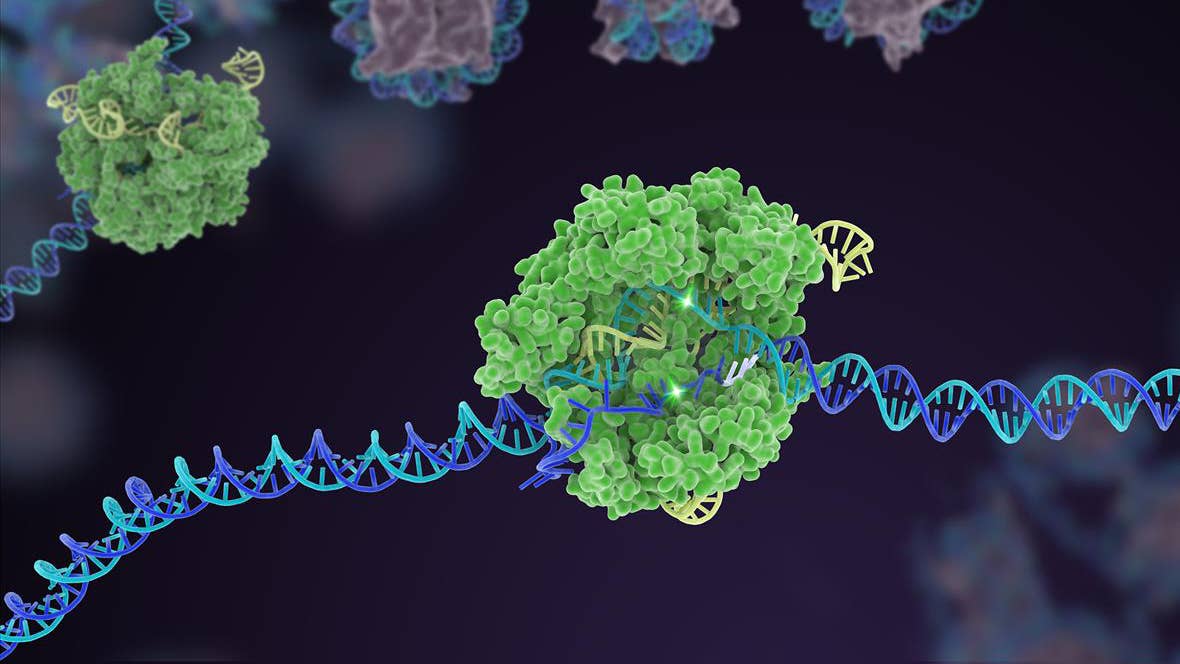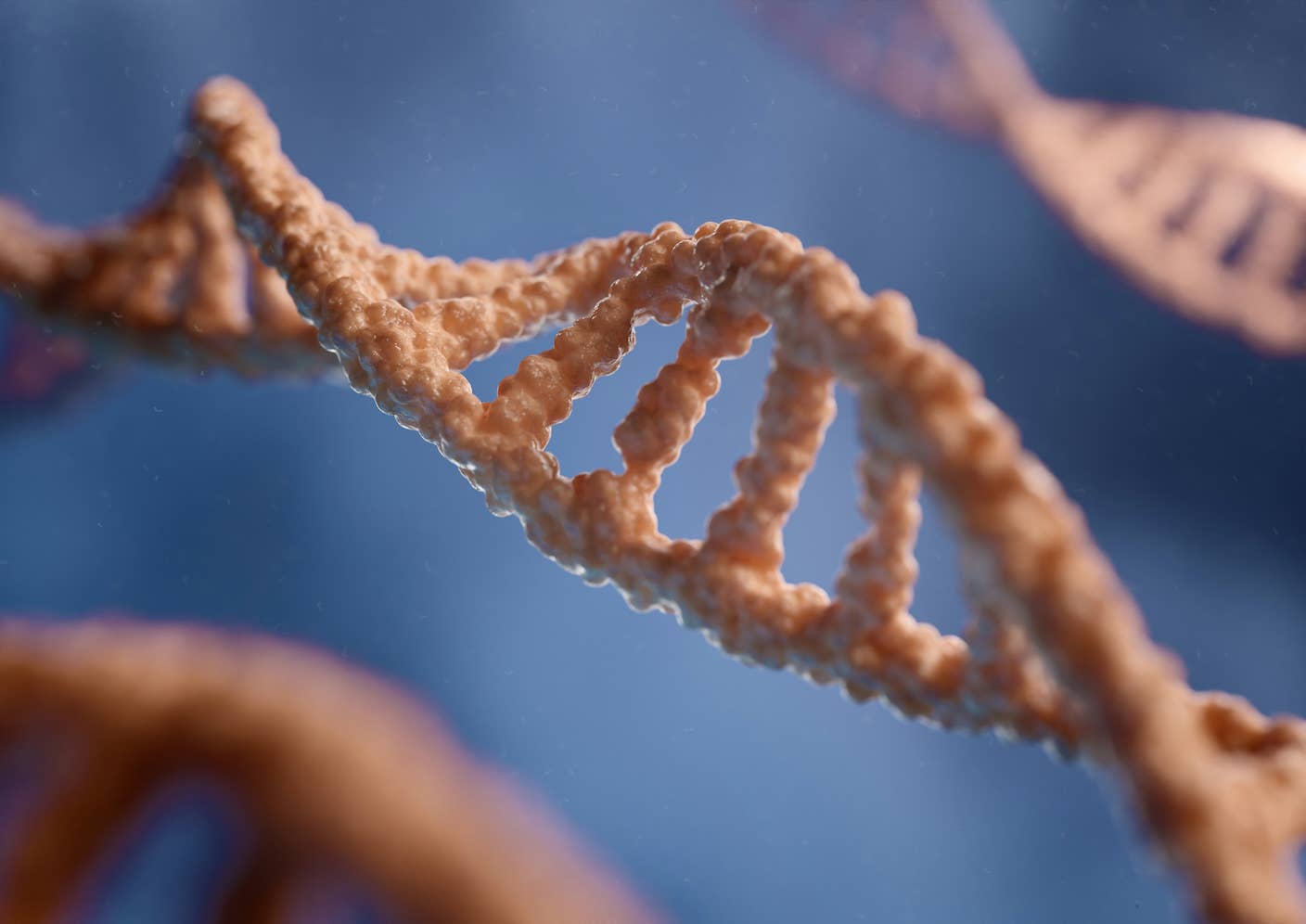Inaugural Synthetic Biology Incubator SynBio Launches At Singularity University

Share
A bold, new venture took flight recently with the initiation of the SynBio Startup Launchpad, Singularity University's inaugural accelerator program in synthetic biology. Aimed at vaulting entrepreneurs with rapid-cycle, low-cost ideas into viable companies, the stipend-assisted program provides a foundation of education, mentoring, resources and space for the startups to develop and build a business. In partnership with Triple Ring Technologies, SynBio is SU's first incubator program of this type, one that's modeled after successful accelerator programs, such as Y Combinator.
Competition for the pilot program was steep with 40 startups applying , and in the end, only three companies were selected: Evolutionary Solutions, Modern Meadow, and SoilGene.
Teeming with ambitious ideas and some pretty futuristic potential, synthetic biology is an emerging multidisciplinary field in which the principles of genetic engineering are coupled with genome design software to capitalize on the plummeting cost of DNA analysis and synthesis. The approach is to construct artificial biological systems in a similar way that computer chips are made. The result is a broad array of potential technologies that could lead to a radical transformation across a variety of sectors, including medicine.
The conception and development of the Launchpad incubator has that distinct startup feel, where a handful of people take a great idea and make it into a viable entity at just the right time.
To oversee SynBio, SU recently appointed Sandra Miller as Managing Director of New Venture Development. Sandra was formerly Director in the Labs for Enterprise Creation at the Kauffman Foundation and Managing Director of the Biodesign Program at Stanford. Describing SynBio as an intentionally small program that can be customized to the needs of the companies, she explained that the Launchpad "is absolutely an experiment. She adds, "We will have a lot of lessons from the first program that will help us to think about the best way SU can help companies in potential future programs. It is only four months. In life science, that's a small timeline, so it will be interesting to see what progress and product development can be accomplished in that time.""
The program's selection criteria, according to Sandra, examined, "the scope of what startups could get accomplished in four months. The interview process also looked at the team to get a sense of their value to the company and what each would need over time to add to their team. Other criteria included decision-making abilities, the extent of their commitment, and what they've been able to accomplish to date on their own."
SynBio was conceived by Andrew Hessel, Co-Chair of Biotechnology and Bioinformatics at SU, and John Cumbers, a researcher as the NASA Ames Research Center in synthetic biology. When asked what makes synthetic biology a viable field for startups, Andrew said, "What we're seeing is a trend toward digital biology...we've seen the maturation of bioinformatics to become a more holistic systems biology that is very data intensive. But this is information about life being captured and put into computers. What makes synthetic biology so interesting to me is that it takes this information and uses it to help build living things." The creation then of the SynBio program was clear. "We see the tremendous success for hardware and software startups all the time, all because of digital technologies. Now we think it's becoming biotech's turn to shine, and we're keen to explore and support the companies entering the space." For the selection process, Andrew described what was required to make the cut: "We had to see the commitment of the founders shine through the application. They had to have a great idea but even more than this, we had to feel that they really wanted their company to work."
Commenting on the selection process, John said, "We turned down great ideas, we turned down poor market analysis...the essential criterion was the team." He explained that product development in synthetic biology is possible for startups because of the decreased cost of reading DNA, adding, "Whereas it cost $3 billion to sequence the first human genome over a decade ago, now it costs $10k or less. Similarly with synthetic biology, the first synthetic genome cost $20 million to make, but the cost of DNA synthesis is also falling exponentially. Cheap DNA gives biologists the time to spend on design of DNA, rather than construction."
"We think we've got three great teams" John said and shared what makes each of them exciting.
Evolutionary Solutions is developing an oligo- to genome-scale synthesis device. The team is comprised of two ambitious undergraduates from Georgia Tech, Kettner Griswold and Paul Sebexen. Though they are the two youngest SynBio participants, Kettner and Paul have already made significant accomplishments in their young careers.
John: "They have seen the pain of slow and expensive DNA synthesis, and they want to turn the market on its head. They represent a real force for disruption in that market."
Modern Meadow is targeting the food and textile industries by applying tissue engineering methodologies to produce a novel class of biomaterials. Andras Forgacs, one of the company's founders, also co-founded Organovo, which pioneered 3D bioprinting and successfully transitioned from startup to publicly traded company with their first commercial bioprinter. Andras is also a co-founder of The Resolution Project, a non-profit aimed at developing socially responsible young leaders.
John: "Modern Meadow offers a great example of a consumer-facing biology product. I want a belt made of Modern Meadow leather."
SoilGene is applying metagenomic and bioinformatic strategies toward land surveillance to make natural resource discovery faster and cheaper and assess geographic areas for their agricultural potential. The SoilGene team consists of Zachary Apte, a UCSF biophysics graduate who founded EvolveMol and participated in Startup Chile, and Robert Lim, who worked at a healthcare IT startup.
Be Part of the Future
Sign up to receive top stories about groundbreaking technologies and visionary thinkers from SingularityHub.


John: "I'm excited about SoilGene as they are applying genomics to a completely new market."
Andrew shared his enthusiasm for the companies participating as well: "We've got young entrepreneurs working on breakthrough DNA synthesis technologies, freshly minted academics with deep expertise on DNA sequencing and analysis, and seasoned biotechnology entrepreneurs working on products that could one day show up on supermarket shelves or at your favorite clothing store. Diversity and passion. They're all keen to work hard this summer and be successful."
Over the course of the summer, these companies will engage in sessions with investors, other entrepreneurs, intellectual property and tax attorneys, and ethical and policy experts in synthetic biology, along with the opportunity to build peer-to-peer relationships.
But the essential task for the summer is product development and that means bench work. Fortunately, that's where Triple Ring comes in.
Triple Ring is an engineering consulting firm serving medtech, life science and defense industries and is supporting SynBio by providing the startups with access to its new wet lab, a combination chemistry/BSL-2 biology lab with equipment for molecular and cellular biology as well as handling human and animal tissues. Dr. H. Roger Tang, who is an Advising Scientist of Bioengineering & Biotechnologies, explained that "Triple Ring's wet lab is part of a 64,000 square foot facility in Newark that includes dedicated laboratories for electronics, optics, and radiation source development; a machine shop for mechanical prototyping; client office space; and a pilot manufacturing facility." In regards to the partnership with SU, he said, "We are very pleased to be hosting this inaugural year of the SynBio incubator and are looking forward to an interesting and fruitful summer with the teams."
So what's in the near future for these three teams? In mid-August, the incubator will wrap up with each company presenting their work to SU and investors at a two-day Demo Day. Beyond that, Sandra suggests that SU is looking to have long-term impacts on the synthetic biology community, starting with these hand-picked companies. "We will be working and putting together more infrastructure and community to support these companies going forward." She notes that it may be two to three years to fully gauge the impact the program is having.
Raymond McCauley, Chief Science Officer at Genomera and co-chair of SU's Biotechnology & Bioinformatics efforts, summed up the SynBio program and the university's role in the field nicely:
Synthetic biology is at a take-off point today precisely because of the successes we've seen in tech and biotech. Advances in DNA sequencing and synthesis, especially plunging costs, give unprecedented advantages to companies working in these fields.
If you are unfamiliar with synthetic biology as a field or are just interested in seeing an awesome presentation of its potential, check out this great video:
[Media: Singularity University, YouTube]
[Sources: Singularity University, Triple Ring]
David started writing for Singularity Hub in 2011 and served as editor-in-chief of the site from 2014 to 2017 and SU vice president of faculty, content, and curriculum from 2017 to 2019. His interests cover digital education, publishing, and media, but he'll always be a chemist at heart.
Related Articles

Souped-Up CRISPR Gene Editor Replicates and Spreads Like a Virus

Your Genes Determine How Long You’ll Live Far More Than Previously Thought

Google DeepMind AI Decodes the Genome a Million ‘Letters’ at a Time
What we’re reading




